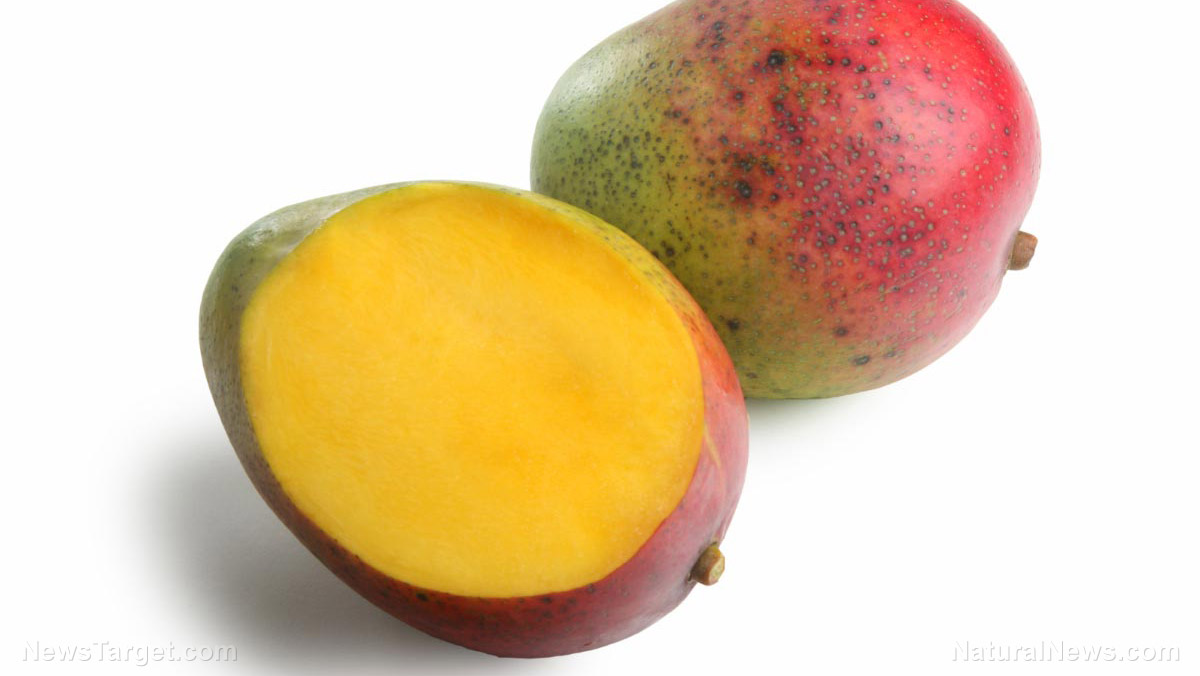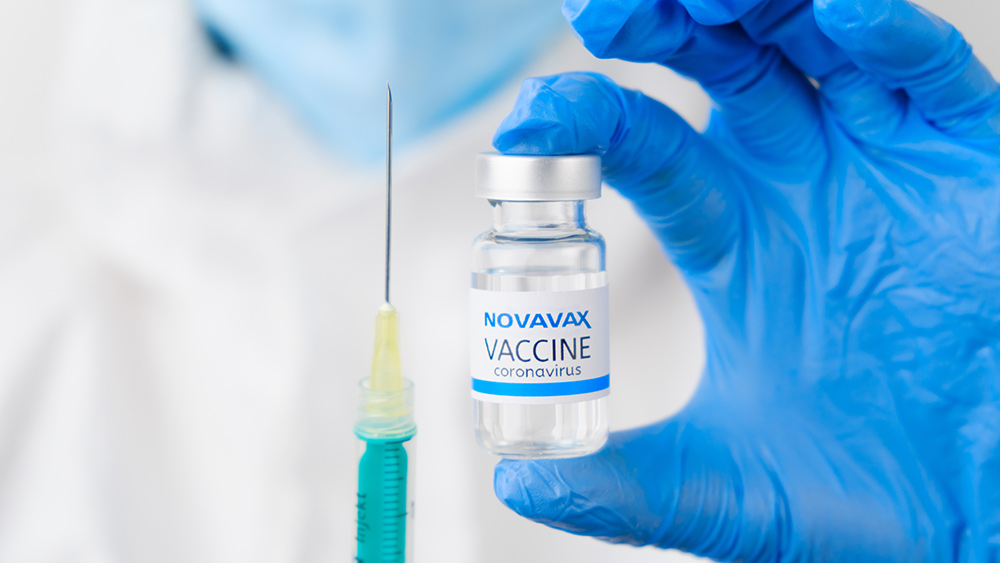Study links 6 ARTIFICIAL SWEETENERS to faster brain aging in heavy consumers
11/25/2025 / By Olivia Cook

- A major Brazilian study following more than 12,000 adults for eight years found that people who consumed the most artificial sweeteners showed faster cognitive decline – equal to up to 1.6 years of extra brain aging. Researchers said the effect was strongest in people under 60 and those with diabetes, who already face metabolic stress.
- Six common sweeteners – aspartame, acesulfame-K, erythritol, saccharin, sorbitol and xylitol – were linked to faster declines in memory, thinking and verbal fluency. Experts and the American Academy of Neurology stress that the study doesn’t prove causation, but say the consistency of the data suggests these additives may not be the “safe swap” to sugar many assume.
- Researchers propose several biological explanations, including shifts in the gut microbiome and inflammation that may indirectly influence how the brain ages. Specialists say such changes can nudge the brain’s immune cells into a more inflammatory state, a pattern seen in conditions like Alzheimer’s and Parkinson’s.
- The recommendation from nutrition and neurology sources: reduce how intensely sweet your diet needs to be overall and reach for fiber-rich whole foods or natural sweeteners like stevia, maple syrup or honey, among others, when possible.
- Many people consume products containing artificial sweeteners or “added sugars” without realizing it, making informed choices tough unless you know where to look and which alternatives may support long-term brain health.
A new wave of research is challenging a long-held assumption in modern dieting: that “sugar-free” automatically means “risk-free.” Diet sodas, sugar-free yogurts and those colorful packets of sweeteners have been marketed as the smarter way to stay slim and avoid blood-sugar spikes – a “healthier” swap for refined sugar. But evolving science suggests the brain may be paying a quiet price for that promise of guilt-free sweetness.
Walk through any grocery aisle and it’s clear how deeply these additives have taken hold – “zero sugar” drinks, low-calorie protein bars and even condiments are boosted with artificial sweeteners. They’re convenient, everywhere and designed to feel like the obvious choice.
Now, a major eight-year study published in Neurology (October 2025) is raising a sobering question: Could frequent use of low- and no-calorie artificial sweeteners be quietly accelerating brain aging?
According to the American Academy of Neurology, the study followed 12,772 Brazilian adults, average age 52, and tracked their consumption of seven common low- or no-calorie sweeteners found in everyday products – aspartame, acesulfame-K, erythritol, saccharin, sorbitol, tagatose and xylitol.
Participants were grouped by daily intake:
- Low consumption – about 20 mg/day
- Moderate consumption – about 66 mg/day
- High consumption – about 191 mg/day or roughly what you’d consume in a singe can of diet soda
Over eight years, participants completed cognitive tests that measured memory, word recall, processing speed and verbal fluency (how quickly they could generate words in a category – an early marker of cognitive sharpness).
The pattern that emerged started researchers: all six of the seven sweeteners (except tagatose) were tied to faster cognitive decline.
The numbers told a clearer story:
- Moderate consumers had a 35 percent faster decline in memory and thinking and a 110 percent faster decline in verbal fluency.
- High consumers experienced a 62 percent faster decline in memory and thinking and 173 percent faster decline in verbal fluency.
Those in the highest intake group showed declines equivalent to 1.6 years of accelerated brain aging.
Dr. Claudia Kimie Suemoto, the study’s lead author, put it plainly: While a single (diet) soda isn’t likely to cause noticeable problems, regular (daily) heavy use may nudge the brain’s aging process forward.
Interestingly, the study’s strongest associations showed up in people under 60 years of age. For adults over 60, the connection wasn’t statistically significant. Experts suggest this may reflect how the brain changes across the lifespan: Midlife choices appear to shape how resilient cognition remains decades later.
The stakes were even higher for people living with diabetes.
The study found that participants with diabetes who consumed high levels of artificial sweeteners showed even faster declines than non-diabetic participants at the same intake level. Neurologist David Perimutter explained that diabetes already places the gut and metabolic systems in a “primed inflammatory state.” Adding frequent artificial sweeteners may intensify this existing stress.
How could artificial sweeteners affect the brain?
If something contains “no calories” and barely registers in the bloodstream, how could it influence thinking or memory?
Experts believe the answer lies far from the brain – in the gut microbiome.
The gut microbiome is a thriving community of billions of bacteria, fungi and microbes that influence the body in surprising ways, including metabolism, immunity and communication between the gut and the brain. According to pharmacology and microbiome researchers cited in Health, what we eat dramatically shapes this ecosystem.
Artificial sweeteners may disrupt gut bacteria (a state called “dysbiosis”); trigger inflammation; alter how the body handles glucose; and influence chemical signaling between the gut and the brain.
While the precise mechanisms aren’t proven, the theory is biologically plausible. When the gut microbiome becomes imbalanced, inflammatory molecules can circulate throughout the body – including into the brain.
That’s where microglia come in. These “brain immune cells” act like gardeners, pruning synapses and clearing away debris. But when they’re repeatedly activated by inflammation, experts say they can shift into a more aggressive mode that may contribute to cognitive decline.
Though the Neurology study does not prove that artificial sweeteners directly cause this shift, its findings align with other research linking artificially sweetened beverages to higher risks of dementia and stroke.
Unlike the other six sweeteners studies, tagatose wasn’t associated with measurable cognitive decline in this research. That doesn’t make it a “free pass” and researchers were careful not to position it as a protective alternative – only that, in this particular eight-year dataset, it did not show the same correlations as aspartame, acesulfame-K, erythritol, saccharin, sorbitol or xylitol.
Simple steps to start today
Small, steady changes make the biggest difference.
- Reading labels more closely. Artificial sweeteners hide in unexpected places.
- Cutting back slowly. Reduce sweetener packets from two to one. Swap diet soda for sparkling water a few days a week.
- Eating more fiber-rich foods. Whole fruits, vegetables, legumes and whole grains support a healthier gut microbiome.
- Adding natural flavor enhancers. Cinnamon, citrus zest, nutmeg or vanilla extract can add sweetness without sugar.
- Reframing sweetness as an occasional pleasure instead of an all-day or daily expectation.
“The simplest way to protect your cognitive future may be the most intuitive one. Choose real foods, stay curious about what’s in your drinks and snacks, and let your taste buds rediscover that ‘sweet’ is supposed to feel like – a treat, not a constant companion,” notes BrightU.AI‘s Enoch.
Are these sweeteners secretly aging your brain? Learn more by watching this video.
This video is from the Daily Videos channel on Brighteon.com.
Sources include:
Submit a correction >>
Tagged Under:
acesulfame K, artificial sweetener, aspartame, brain aging, brain function, brain health, cognitive decline, diabetes, diet, diet soda, discoveries, erythritol, food science, grocery, gut microbiome, gut-brain axis, health science, memory loss, products, real investigations, research, saccharin, sorbitol, tagatose, Xylitol
This article may contain statements that reflect the opinion of the author




















